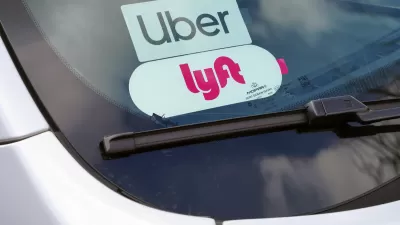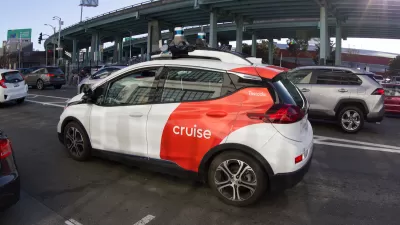Autonomous vehicles are already in production and big city taxi drivers could be out of a job in 10 years, including those for Uber and Lyft.

It may take 5, 10, or in some cases 20 years, but the taxi driver’s job is destined to disappear. By 2025 most major cities in Europe, Asia and North America will be served by autonomous vehicles that will take the traditional role of taxis.
Autonomous ride-sharing and ride-hailing services are the future for Uber and Lyft, too. Both companies are actively investing millions of dollars, through partnerships with technology companies, car manufacturers, and academic institutions, to develop and launch driverless taxi services in five years. Trials and pilot programs –with human drivers as a backup– are already underway. The arrival of driverless vehicles is the end game for the ride-sharing companies, as they will no longer need to deal with the burden of having to pay drivers, nor face strikes and protests over fares and terms of employment.
While autonomous buses could be an interesting solution for cities, the same way that driverless metro trains are already operating in many places and becoming the new standard, I believe the real creative disruption of mobility will come in the form of driverless taxis and car sharing services.
FULL STORY: Taxi Drivers, Your Job has an Expiry Date

Planetizen Federal Action Tracker
A weekly monitor of how Trump’s orders and actions are impacting planners and planning in America.

Restaurant Patios Were a Pandemic Win — Why Were They so Hard to Keep?
Social distancing requirements and changes in travel patterns prompted cities to pilot new uses for street and sidewalk space. Then it got complicated.

Maui's Vacation Rental Debate Turns Ugly
Verbal attacks, misinformation campaigns and fistfights plague a high-stakes debate to convert thousands of vacation rentals into long-term housing.

In California Battle of Housing vs. Environment, Housing Just Won
A new state law significantly limits the power of CEQA, an environmental review law that served as a powerful tool for blocking new development.

Boulder Eliminates Parking Minimums Citywide
Officials estimate the cost of building a single underground parking space at up to $100,000.

Orange County, Florida Adopts Largest US “Sprawl Repair” Code
The ‘Orange Code’ seeks to rectify decades of sprawl-inducing, car-oriented development.
Urban Design for Planners 1: Software Tools
This six-course series explores essential urban design concepts using open source software and equips planners with the tools they need to participate fully in the urban design process.
Planning for Universal Design
Learn the tools for implementing Universal Design in planning regulations.
Heyer Gruel & Associates PA
JM Goldson LLC
Custer County Colorado
City of Camden Redevelopment Agency
City of Astoria
Transportation Research & Education Center (TREC) at Portland State University
Jefferson Parish Government
Camden Redevelopment Agency
City of Claremont





























